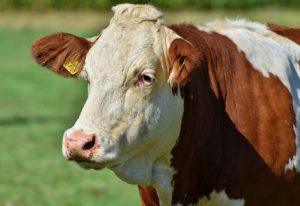Do you have an aging cow on your hands? You may not have given a lot of thought to your bovine friend’s retirement. After all, many cows don’t quite make it that far in life. However, if Bessie lives into her senior years, she will go through many of the same types of changes as people do. She may slow down, become less active, and perhaps eat less than she used to. A Dahlonega, GA veterinarian discusses caring for an older cow in this article.
Bedding
Bessie may develop arthritis in her golden years. She may also become stiff and sore. Put down some extra bedding for her, so she can sleep more comfortably.
Food
Dental issues are not uncommon in older animals. These can make it difficult for Bessie to chew. This can in turn lead to other health issues, including nutritional imbalances and deficiencies. Ask your vet for specific advice on both feeding and dental care.
Retirement Home
Older cows sometimes get bullied at the feeding trough. If Bessie is having a hard time getting her share of dinner, consider setting aside a smaller area for her. Of course, cows get lonely without companionship. Consider keeping a few senior cows in a separate area. Your ‘Golden Girls’ can enjoy their retirement together!
Surfaces
Bessie will become more liable to slipping and falling as she ages. If you get ice in winter, you put sawdust, manure, or pet-safe deicing agents down over slippery areas until it melts. Also, try to keep Bessie on flat ground as much as you can, as she may struggle with steep inclines.
Calving
Cows can have calves well into their teens. Your vet will be able to advise you on when to stop breeding. Just keep Bessie’s age in mind as you schedule breeding or insemination. It’s difficult for older cows to give birth in bad weather. Time things so that the baby arrives in spring or early summer, when it’s not too hot or too cold.
Veterinary Care
Your hooved pal will also benefit from more frequent veterinary checkups. In between visits, keep an eye on Bessie’s condition. Watch for things like lack of appetite, respiratory problems, strange postures, restlessness, and withdrawal. Call your vet if you notice anything unusual.
Please reach out with any questions or concerns. As your local Dahlonega, GA veterinary clinic, we’re here to help!

